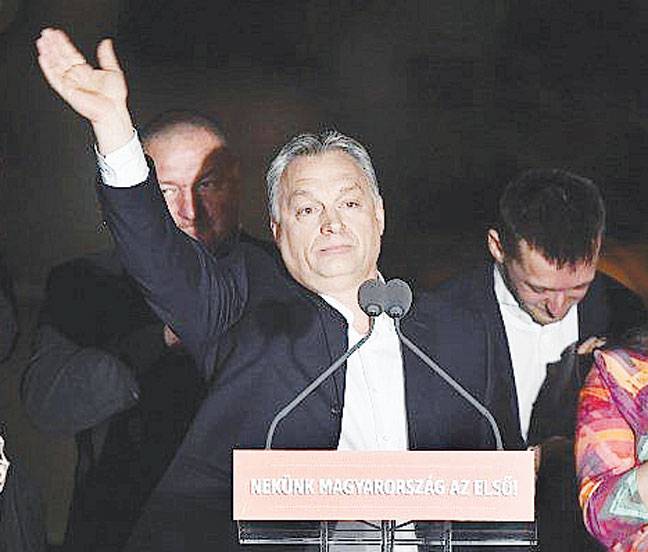BUDAPEST - Fresh from a landslide election win in April, Hungary’s combative premier Viktor Orban was formally sworn in as prime minister Thursday, and hinted at designs on power until at least 2030.
“I feel that when we set large goals for ourselves,... we are on the same wavelength as the people,” Orban told newly-elected deputies inside the ornate parliament in Budapest. “This emboldens and entitles to make plans not just for four years, but that we must think in terms of 10, or 12 years,” he said.
Such a timeline is “rational” as the next multi-year European Union budget - currently under negotiation - lasts until then, according to Orban.
“I have always seen the 20-year-period between 2010 and 2030 as a unified era,” he said.
On April 8 the 54-year-old’s right-wing Fidesz party won its third consecutive two-thirds majority, granting it further legislative carte blanche to amend the constitution and fast-track new laws.
Since 2010 Fidesz have used so-called “supermajorities” to write a new constitution and launch a legislative blitz that opponents say has weakened democratic institutions and handed Orban too much power.
Critics including the Organisation for Security and Co-Operation in Europe said biased state media and some election rules brought in by Orban tilted the ballot in his favour.
Several opposition parties protested the result by not attending Thursday’s ceremonies.
After taking the oath of office he told deputies that the April election result reinforced the changes implemented since 2010.
“(It) showed that the people also thought that we have had a good eight years,” he said.
Despite the two-thirds majority, Orban, who served a first term as prime minister between 1998 and 2002, said his new government will always “represent three-thirds,... all Hungarian citizens”.
In a wide-ranging address, he said that he wanted Hungary to be among the top five places to live and work in the whole EU by 2030.
Some of Orban’s opponents suspect rather that he wants to steer Hungary out of the EU, and criticise his close relationship with Russian President Vladimir Putin.
Orban insisted Thursday that Hungary’s geographical location demands getting on with three powerful regional players: Germany, Russia and Turkey.






